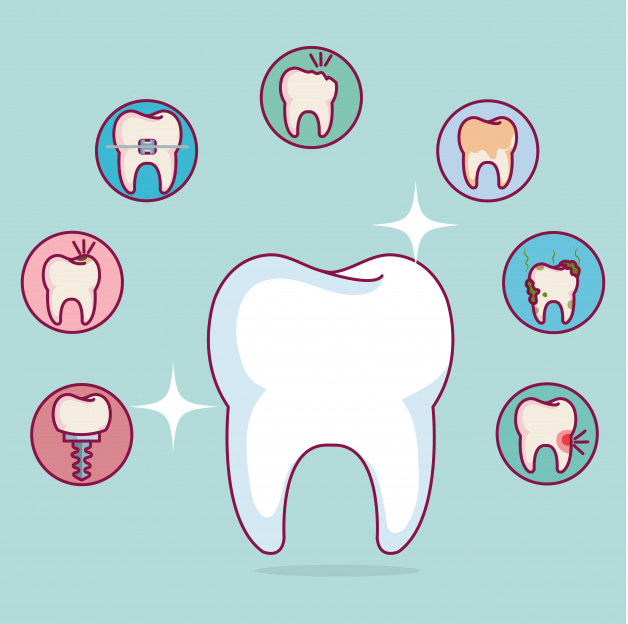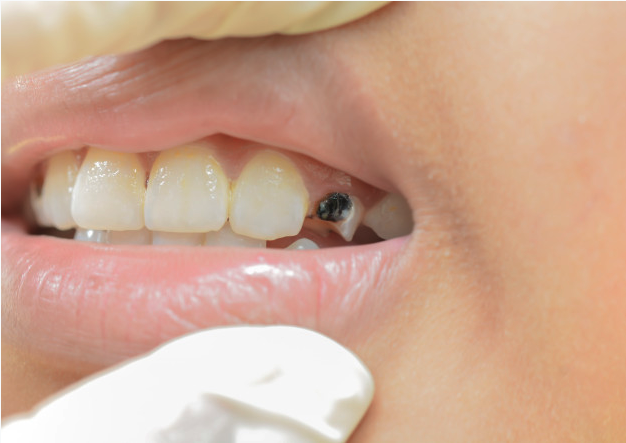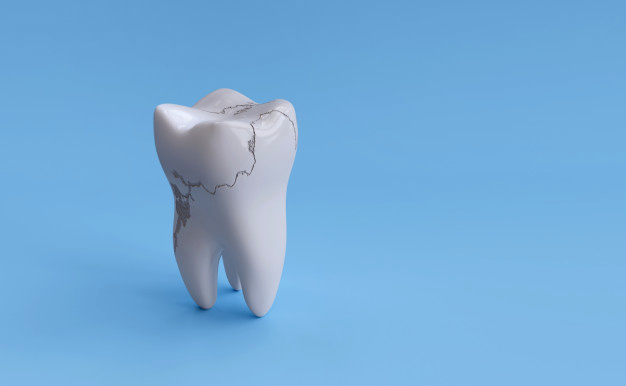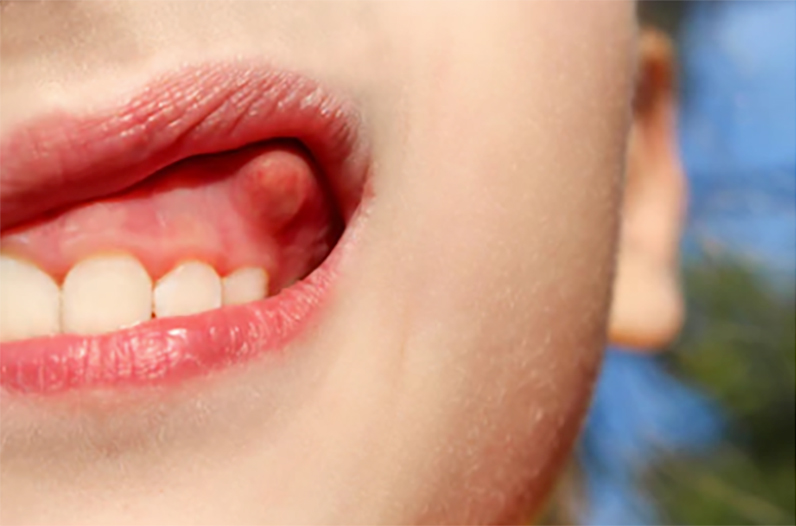
Toothache
What can be more unbearable than a gnawing sensation of constant toothache? Toothache can range from mild, moderate to severe. It can be intermittent or continuous. Pain, in general, is a protective response of the body, which helps us stay aware of the fact that something is wrong.

What can cause toothache?
There are a plethora of reasons for toothache. It can result from something as simple as a food particle stuck between your teeth. Toothache can be disturbing; one of the most common reasons for toothache is dental decay. Dental decay is a bacterial infection of the tooth that starts from the tooth’s outermost layer, the enamel. It progresses and involves a deeper structure. Once the dental pulp that contains the tooth’s nerves and vessels is affected, it elicits a painful response. The pain varies according to the degree of severity of the infection. The infection can progress further to involve structures around the tooth and lead to a dental abscess filled with pus, which is excruciatingly painful and constitutes a dental emergency. Toothache can also result from tooth sensitivity, gum diseases like gingivitis and periodontitis, cracked tooth or crown, and grinding or clenching of the jaw. If you are looking for more information, keep reading ahead; our expert London Dentists elaborate on various toothache forms and their management.
Different types of toothache and what they mean

Dental caries
Toothache due to dental caries can be spontaneous and may start without an apparent cause. It can be mild to severe, throbbing in nature, that worsens at night. It may also awaken you from sleep due to its severity. It may start when you eat something hot or cold and subside after or even continue to worsen without relief. It can become severe to involve your entire jaw, and you may not be able to figure from where the pain is coming.

Broken or cracked tooth
A broken or cracked tooth may not always produce pain, but it means the tooth’s nerves are exposed when it does. Toothache as a result of a cracked tooth may come and go. It’s severe when you bite down and release the bite. Drinking or eating hot, cold or sweet liquids and foods may lead to unbearable pain. The pain is not continuous. There might be visible swelling around the area of the cracked tooth.

Broken Filling
Dental fillings restore the anatomy and function of the tooth after the removal of caries. However, sometimes unusual high pressure over the filling can crack or dislodge it from its place. It leaves the tooth vulnerable to the oral environment and causes tooth sensitivity. You may experience pain on eating as food gets stuck into the dental cavity. The filling can also get dislodged and impinges on the gums, which may manifest like a continuous pricking sensation.

Dental Abscess
Toothache of a dental abscess is severe, throbbing, and continuous, radiating to the jawbone, the cheeks and ears. Facial swelling and tenderness may accompany it. It leads to excruciating pain on chewing or biting down and causes extreme tooth sensitivity. You might experience a foul smell from your mouth and can be accompanied by altered taste sensations. If not diagnosed and treated early, it can progress to breathing difficulties due to increased swelling.
What needs to be done when you have a toothache?
The first and foremost thing you should do when you have a toothache is schedule a dental office visit to get it checked. That is where we come in to help you. Our team of expert London Dentists experienced in patient care will help you with your dental health needs. Please schedule an appointment with us at the earliest if you are experiencing any of the issues mentioned above and visit our dentist in London.
Toothache is a complex disorder and needs thorough attention that our London Dentists will provide for you. It may need a simple filling to some more invasive procedure like a root canal treatment followed by a crown. Broken teeth need a checkup and treatment accordingly; it may require splinting or may need to be extracted and replaced. A dental abscess has to be drained as an emergency before it progresses.
Whatever may be the cause of your toothache, our team of London dentists are here to help you. We understand how painful and unbearable toothaches can be, and we aim to provide you with the best possible care to relieve your toothache and restore your teeth to make sure you keep wearing your smile!
Home remedies to relieve toothache before seeing a dentist

What to do if your toothache has taken a turn for the worst and you cannot visit us right away?
If you are in such a situation, you can do something before scheduling your appointment with our expert dentists in any of our four London clinics.
- You can take an over-the-counter painkiller to manage pain until you come into our clinic and find a permanent solution.
- Warm salt water gargles will also help with the pain.
- Hydrogen peroxide gargles.
- Medicated toothpaste for tooth sensitivity will make eating hot, cold, and sweet foods tolerable again.
- Cold compress in the swelling area will reduce the swelling and make the pain a little more manageable.
- Chewing on ginger might also help with pain and may reduce swelling.

However, it imperative to schedule your appointment with us and get your tooth condition diagnosed and treated as soon as possible.
Dental infections and toothache are notorious and progress quickly. To prevent any complications, it’s essential to be vigilant about your oral health.
You can make an appointment with us and get your treatment done with our experienced dentists and specialist at one of our four dental clinics in London, all conveniently located minutes away from tube stations. For more information, you can contact us and let our dentists help you resolve your dental issues and stay at the top of your health.
